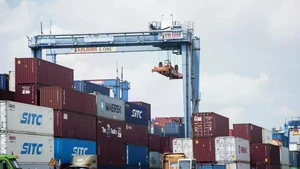After three months of operating under the two-tier local government model, both citizens and businesses have begun to notice positive results as the state administrative apparatus gradually shifts from a passive management role to one of serving the people and facilitating development.
Preventing financial and budgetary “disruptions”
According to Nguyen Minh Tan, Deputy Director of the State Budget Department (Ministry of Finance), when commune-level authorities resumed operations after consolidation, encouraging results were recorded. Many localities promptly arranged and strengthened their commune-level financial and budgetary structures; budget estimates were allocated to ensure that expenditure tasks were not interrupted. However, a number of difficulties and bottlenecks remain.
In some localities, infrastructure is not yet synchronised, salary and operational expenses have not been paid on time; the settlement of benefits for officials, public servants and civil servants has been affected during the restructuring process; information technology infrastructure is still inconsistent, with disruptions in the connection to the national public service portal, hampering administrative procedures. Problems also persist in managing public assets and processing business registration.
Based on recommendations from localities, the Ministry of Finance has issued detailed guidance on key issues in implementing the two-tier local government model. Many of these matters have been swiftly addressed to prevent any “break” in the budget, ensuring that revenue sources and spending mechanisms remain as before the restructuring, thereby enabling commune-level administrations to function without disruption.
Nguyen Manh Cuong, Deputy General Director of the State Treasury, said that the pace of opening accounts and paying salaries at the commune level had improved significantly after the Ministry of Finance issued Official Telegram No. 06/CĐ-BTC, which called for continued efforts to remove obstacles in areas under the Ministry’s management.
For example, on August 15, there were 6,700 units nationwide that had not yet opened accounts at the treasury (12%) and 14,533 units that had not paid August salaries. By September 12, the number of units without accounts had dropped to 256 (0.45%), while 372 communes, wards and organisations had yet to pay salaries for officials and public servants (0.71%). The State Treasury promptly coordinated with localities to fully resolve this issue.
Regarding business registration management, the Department for the Development of Private Enterprises and Collective Economy reported that businesses and households in some areas were unable to complete registration changes. This was due to commune-level officials being unfamiliar with online procedures, accounts not yet being issued, and existing household business data not transferred to the new database system. In some places, system overloads caused network congestion or prevented registrations from being completed.
The Department has organised training sessions for commune-level officials in 17 provinces and cities and will continue to expand these sessions to other localities. Local governments, for their part, need to take decisive and proactive steps to implement the two-tier local government model in business registration, particularly in consolidating and appointing leadership at commune-level business registration offices so as not to hinder the development of enterprises and household businesses, or broader socio-economic growth.
Focus on managing public assets
Director of the Department of Public Asset Management Nguyen Tan Thinh stated that following consolidation, more than 2,000 communes nationwide still lacked experienced staff to manage public assets. Localities must promptly issue directives and fully implement the requirements for arranging, allocating, managing and handling public assets in accordance with legal regulations, as well as the directives and guidance from central authorities.
Regarding public assets, several localities have proposed solutions to difficulties with office buildings and staff housing after the administrative apparatus was restructured. A representative of the Dien Bien provincial Department of Finance noted that many communes were previously located far apart, and after consolidation, travel for officials, public servants and civil servants has become difficult. Commune-level staffing has risen to between 70 and 90 people, yet offices were originally designed for around 20 staff, leading to shortages of workspace and official residences.
Deputy Minister of Finance Nguyen Duc Chi remarked that challenges are inevitable when operating under the new model, and that the Ministry of Finance is working closely with localities to find effective solutions. In the case of Dien Bien and similar areas, the Ministry will take note and consider new investments or supplementary funding in the most efficient way possible.
He also cautioned that the management of public assets is currently facing significant challenges, as in some localities, assets have not been fully handed over after consolidation. If asset management is neglected and lacks specific solutions, it will lead to loss and waste. Provincial finance departments must provide proper advice to local leaders on how to arrange, handle and manage public assets most effectively, in line with the spirit of legal regulations and central directives.
To ensure that the administrative system operates smoothly, continuously, and effectively, the Ministry of Finance has submitted to the Government and the Prime Minister a proposal to support localities with over 7.7 trillion VND (292 million USD) for restructuring administrative units and ensuring facilities for agencies and units after consolidation, along with more than 42 trillion VND (1.59 billion USD) for implementing policies and regimes.
















